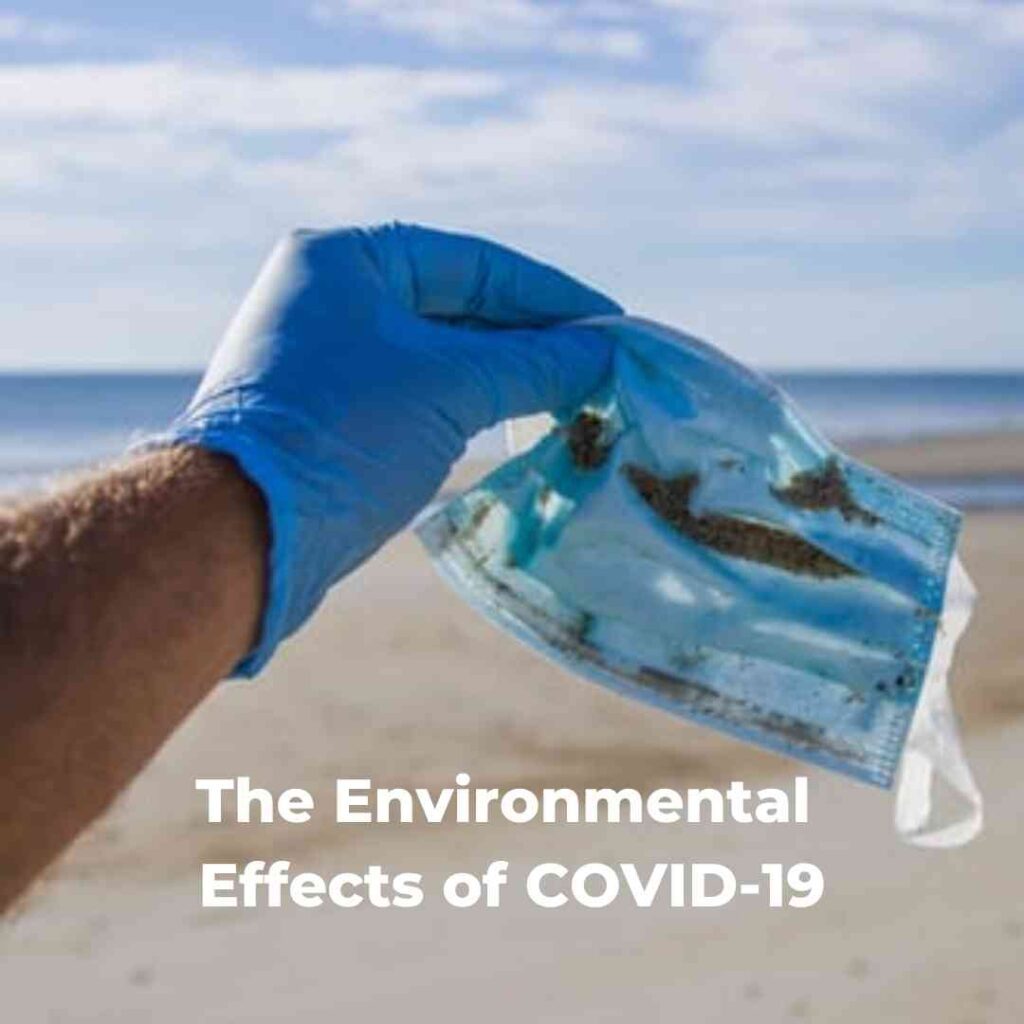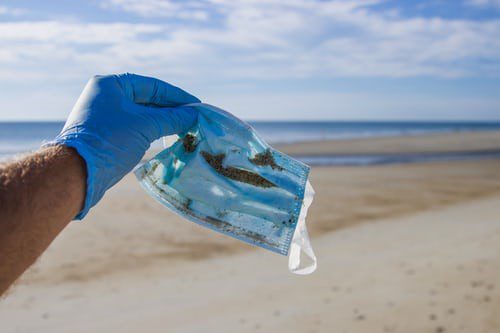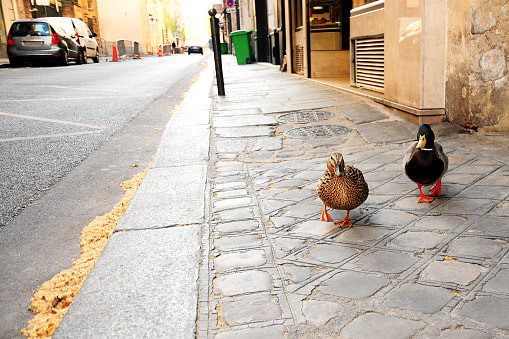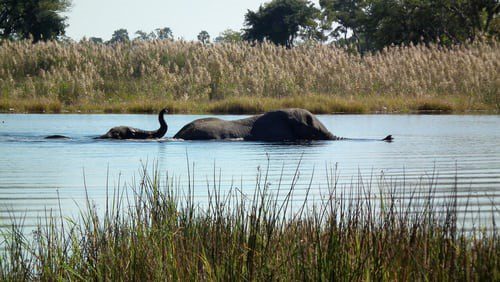
The Environmental Effects of COVID-19
The serene and almost post-apocalyptic images of wild animals peacefully roaming carless streets sparked some hope near the beginning of the pandemic, and a few small environmental wins did occur. Countries including Japan, Canada, South Korea, and South Africa pledged to become carbon neutral by 2050, while China pledged to reach the same goal by 2060. This seems to be a huge step in a positive direction for some hugely coal-dependent countries – with China being the largest greenhouse gas emitter – but one wonders whether 2050 is too late and whether these countries will stick to their word. After so many countries failed to meet their Paris Climate Accord goals, with Donald Trump even withdrawing from America, it has become increasingly difficult to trust pledges until the follow-through actions become apparent. A glimmer of hope can be seen with Joe Biden, who has announced his plans to rejoin America with the Paris Climate Accord, as well as to revoke the Keystone Oil Pipeline permit and clamp down on other oil and gas drilling in pristine areas like the Alaska National Wildlife Refuge.

With cars and factories forced to halt during the COVID-19 Pandemic, foggy skies cleared up as global daily CO2 emissions fell by 17% compared to 2019. This, unfortunately, only translated to a reduction of between 4.2% and 7.5% for the year – a tiny drop that scientists are calling a “blip on the long-term graph.” With CO2 levels rising steadily each year, what we thought was a reduction in 2020 was just a slightly smaller increase than usual.All the while, concentrations of methane continue to rise to record levels in the atmosphere due to industrial animal agriculture and drilling for oil and gas. Methane traps much more heat than CO2, in the short term.
These statistics paint a bleak picture – showing us that we cannot rely on short-term solutions or forced government regulations to ‘save us’, neither can we rely on simple emission reductions like electric vehicles and more efficient energy use – which only contributed 1% to 2020’s emissions drop. We need real, big, and widespread solutions: a dramatic change in lifestyles, a total overhaul of agriculture and energy, and a mass shift in mindsets.

Sustainability is still a buzzword, but it hasn’t been enough for years… we are moving towards a cliff and it isn’t much use just to slow down, we need to stop and back-peddle, fast! This means regenerating the Earth to start undoing the damage that we have done as a species. Regenerative Agriculture has been saying this for quite a while, and now scientists are finally getting on board saying in a public letter that” we must heighten our ambition to climate restoration on every level.”
Another huge impact of COVID-19 policies has been the resurgence of single-use plastic. In an effort to keep everything clean and sanitised, companies and individuals have brought back numerous single-use plastic items en masse. 2020 was set to be a year of change, with many countries banning single-use plastic. After the pandemic hit, most of these plastic bans were suspended or rolled back, allowing online delivery services to ramp plastic use up to new highs. The plastics industry, emboldened by its resurgence, went as far as to lobby the American government to overturn US plastic bans – calling reusable items “a public safety risk” despite the fact that these items can be sanitised like anything else.
Masks and gloves have dramatically increased litter in populated areas – a problem exasperated by the fact that medical-grade masks are made from non-recyclable polypropylene. The Coronavirus will hopefully become a thing of the past within the next year, but masks from the pandemic will remain for another 500 years to come.
Much of the waste produced during the COVID-19 pandemic is not recyclable and is now beginning to enter oceans and waterways.
Recycling businesses have taken a huge knock over this time, shrinking by more than 20% in Europe, 50% in Asia, and 60% in the US. This is due to much cheaper ‘virgin plastics’ flooding the market as businesses on the brink of the shutdown are forced to choose the cheapest inputs over those that are more environmentally friendly. The oil industry, which was being targeted for its environmentally catastrophic ways pre-pandemic, is enjoying a boom fueled by plastic and plans to invest $400 million in new raw material plants over the next 5 years.
Had the plastic bans stuck, they could have resulted in an oil demand reduction of 2 million barrels per day by 2040.
This resurgence of plastic use and emboldening of the oil industry, combined with the mass distraction of the public due to COVID fear, has allowed the oil and gas industry to begin numerous environmentally catastrophic new ventures across the globe.
Although it was opposed by environmental organizations who stated that the public was not in the right state to comment adequately in the midst of COVID-19, 1 100 miles of land were approved for use for a network of CO2 pipelines in Wyoming.

A massive blow to African biodiversity, wild spaces, and water security – ReconAfrica have been allowed to begin oil drilling exploration for 150km along the Kavango River in the delicate Namibian and Botswanian semi-arid region that feeds the lush Okavango Delta.
If ReconAfrica finds petroleum, which they seem confident of, what will be one of the biggest new oil ventures in history will, simultaneously, be one of the biggest natural disasters – irrevocably affecting wildlife, heritage, and around 200 000 indigenous people that rely on the Kavango River and surrounding fragile ecosystem for food, water, and livelihoods. The heritage affected by the potential increase in seismic activity caused by the proposed fracking and other methods of extraction would include 1200-year-old San rock paintings that form part of the UNESCO World Heritage Site – Tsodilo Hills.
The area is not only an important migration route for the world’s largest remaining elephant population, it is also home to four animal species listed as ‘critically endangered’ and seven species listed as ‘endangered’ by the International Union for Conservation of Nature.

ReconAfrica and the Namibian government are set to make unimaginable amounts of money from this – potentially the ‘largest oil play of the decade’ – with the government owning 10% shares in the exploration concession. It’s easy to see how and why both parties have severely downplayed the environmental risks associated with this venture, and how they have been able to use the pandemic-dominated media to their advantage. Experts have reportedly already found issues in the way that the environmental impact assessment for the project was carried out.
Underneath the politics and the Coronavirus Pandemic, 2020 was a terrible year for the environment too. And, we have no one to blame but ourselves as a species. Like AIDS, Zika, SARS, and Ebola – COVID-19 came from an animal facing severe environmental pressure. Encroaching wildlife habitats, as well as the consumption of high-risk wild animal species dramatically raises the risk of disease spillover. This is especially risky when farms with domestic animals raised for meat are the ones encroaching on the wild spaces. In fact, research has recently shown that most infectious diseases are, in some way, caused by human activities.
Our vulnerability to new diseases is due to the environmental pressure that our extravagant lifestyles of disregard are putting on the natural world. The worst contributors are deforestation, industrial agriculture, and intensive livestock farming.
We are at a critical crossroads, right now, teetering on the edge of the Sixth Mass Extinction. While COVID-19 has been devastating to humans, climate change and biodiversity loss threaten the very existence of our entire species and the many that we are taking down with us.
It is up to each of us to stop making excuses, stop lying to ourselves and wait for someone else to do the work – we must radically change our lifestyles right now and put unprecedented pressure on the companies and governments that are profiting off of the demise of the entire planet.

https://www.huffpost.com/entry/good-things-environment-2020_n_5fe21782c5b6acb53454947e
https://www.huffpost.com/entry/covid-19-emissions-climate-change-effect_n_5fb83e4cc5b6cd86dfbd8810?guccounter=1&guce_referrer=aHR0cHM6Ly93d3cuZ29vZ2xlLmNvbS8&guce_referrer_sig=AQAAABvHtEdfl66hOjNPhOubC_PGssyhpjrsht22KGOsuhZ9RGLUCizCFLBGGD8TcMHFUIAt-wCY07_vmGgp6-NCwvEwH0GILLzhGXWdB3yy-RdYCz54XifPP8hblC0z3irWAnmT_BaINlMR6LhFyidmHhDJ20diClECcBR4ejCUmfU0
https://www.huffpost.com/entry/coronavirus-plastic-environment-europe_n_5ece4243c5b6f46e9ce398fc
https://www.reuters.com/investigates/special-report/health-coronavirus-plastic-recycling/
https://www.kpvi.com/news/regional_news/interior-approves-major-pipeline-initiative-in-wyoming-to-help-advance-carbon-capture-eor/article_a9722bbd-c583-5c15-8506-5e08273f7a12.html
https://www.dailymaverick.co.za/article/2020-12-15-paradise-is-closing-down-the-ghastly-spectre-of-oil-drilling-and-fracking-in-fragile-okavango-delta/
https://www.nationalgeographic.com/animals/2020/10/oil-drilling-fracking-planned-okavango-wilderness/
https://www.theguardian.com/commentisfree/2020/jun/17/coronavirus-warning-broken-relationship-nature
https://www.theguardian.com/commentisfree/2020/jun/17/coronavirus-warning-broken-relationship-nature




